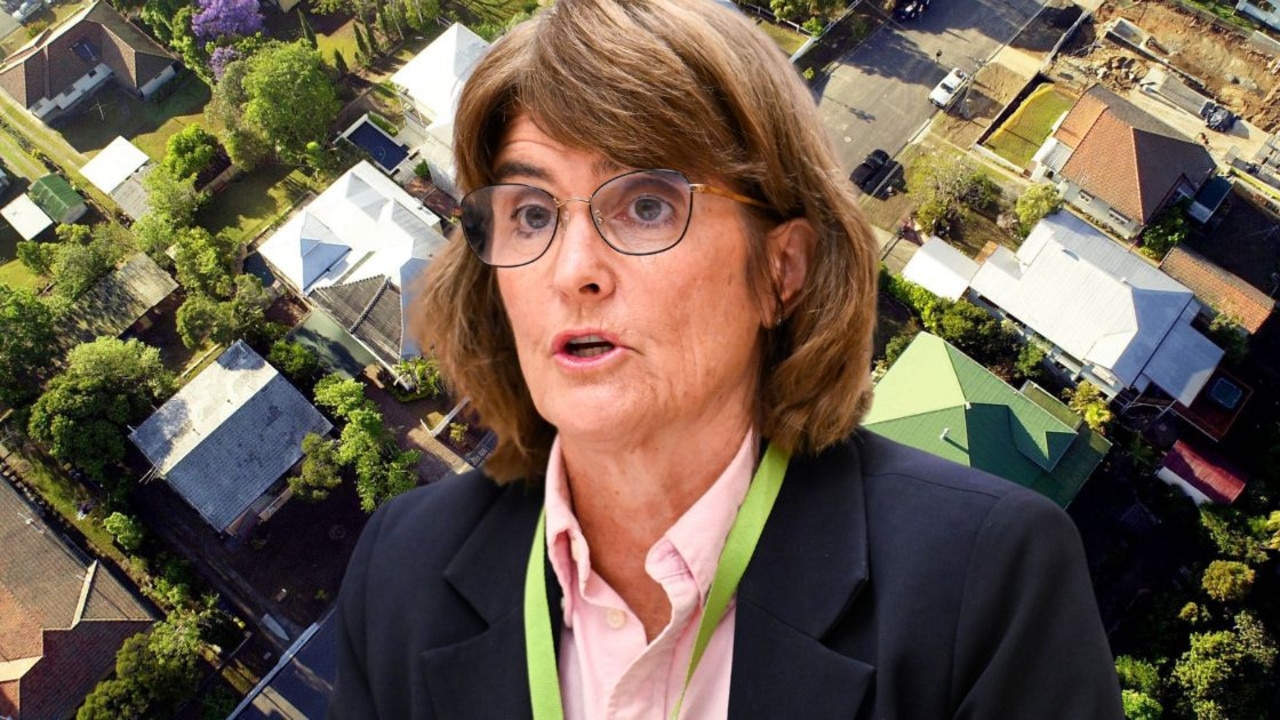Comment: Pressure points already revealing cracks in the man they call ’the current Prime Minister’, Scott Morrison
OUR new Prime Minister is facing an onslaught of obstacles to keep his party in office at the next election, and the weight of this monumental task is already starting to drag him down, writes Dennis Atkins.
CM Insight
Don't miss out on the headlines from CM Insight. Followed categories will be added to My News.
BEING Prime Minister is a high pressure job, probably as tough as any in Australia with constant attention, enormous responsibility for the whole government, a pastoral caring role for your MPs and ownership of every decision taken in your name.
It’s no wonder the stress occasionally shows, even in what are assumed to be normal times.
The past few weeks of Australian politics have been anything but normal with a leadership crisis that paralysed the government for five days, forced an unprecedented shut down of the House of Representatives and, for the fourth time in eight years, led to a sitting Prime Minister being sacked part way through a term without reference to the voters.

The man called “the current Prime Minister”, Scott Morrison, has shown signs of pressure throughout the first four days he’s had the big chair in Parliament’s House of Representatives.
So his telling slip on Wednesday afternoon was understandable but he shouldn’t have let it show that Labor’s Bill Shorten was getting under his skin. You never let that show.
For the third day, Shorten asked a variation on the question many voters have been pondering since August 24 when Malcolm Turnbull was sacked as Liberal leader and PM.
“Will the Prime Minister now finally tell the Australian people why Prime Minister Turnbull is no longer the Prime Minister of Australia?” asked Shorten.
Morrison let his guard down and said it was time for the Labor leader to get over it.
“Get over it!,” shouted Morrison. “It’s time for you to get over it. It’s time for you to focus on the things that matter to the Australian people.”
It wasn’t the first misstep Morrison has made since becoming leader. Despite some puzzling positive reviews, he is not showing himself to be a natural answer to the Coalition’s problems.
For instance, whoever thought it was a good idea to say the behaviour of the government in recent weeks was like a “Muppet Show” should be shown the door.
It might be a good insider the Canberra bubble phrase but in the wider Australian community it became an easily understood description of the chaos and comedy of the way event have unfolded since August 20.
A Labor Party focus group, conducted by a long standing pollster Utting Research, recorded predictable responses from voters who have a low to moderate engagement with politics, saying what had happened was “a joke”, the MPs were “clowns” and “muppets”.

A majority of those in the focus group asked the simple question “why?” which explains the Opposition’s tactic to press this very point every day in Parliament.
On the ABC’s 7.30 host Leigh Sales asked Morrison six times to explain what was wrong with the Turnbull leadership that precipitated the change and the new Prime Minister was left mouthing vacuous talking points.
Asked to explain the difference between the Turnbull Government and his own, Morrison said effectively there wouldn’t be any.
“Well, there’s a continuity, there’s no doubt about that,” said Morrison.
“There’s an absolute continuity.
“I mean I stood with Tony Abbott when we stopped the boats. I stood with Malcolm Turnbull as we balanced the budget and now as we go forward we continue to keep our economy strong, keep Australians safe.”
As Morrison struggled with demonstrating his purpose and legitimacy, the polls were rolling in and they were delivering a consistently doom-laden message.
The Coalition’s primary vote was in the 33 to 34 per cent range and the preferred vote was calculated at 44 per cent — a swing which, if uniform would see the Liberals and Nationals lose about 27 seats.
Such a landslide to Labour would give the ALP a 22 seat majority on the floor of the Parliament, which would give the party its biggest ever seat outcome.
Of course the dust will settle at least a bit and the parties will get closer to the centre of political gravity, although the task of winning government for the Coalition is now exponentially more difficult than it was before Turnbull was dumped.


This leadership change has rewritten the record books. For the first time — and we’re now used to these political convulsions — the party that switched leaders achieved no gain in voter support. In fact, they went backwards.
Turning around the opinion polls is the only challenge facing Morrison as he gets his feet comfortably settled under the Prime Minister’s desk.
He has a by-election for Turnbull’s eastern Sydney seat of Wentworth — on paper the eighth safest Coalition seat in the country with a 17.7 per cent margin.
In these uncertain times no seat can be considered absolutely safe and the departure of Turnbull will cause the Liberal vote to fall significantly. Former diplomat David Sharma might work as a general election candidate but he might not have the X factor needed in a by-election.
If local popular Sydney deputy Lord Mayor Kerryn Phelps runs as an independent, the contest would be thrown wide open and the Liberals would struggle to win.
The other problem on Morrison’s plate is what to do about former leadership insurgent Peter Dutton’s eligibility to sit in Parliament due to questions raised in relation to money received for child care centres owned by family trusts with which he’s associated.
Turnbull has urged colleagues from New York to vote in favour of referring Dutton’s case to the High Court and at least two Liberals have privately suggested they might do so. Former Liberal deputy leader Julie Bishop has said she’ll consider her position if someone moves that Dutton be referred.
In an unfortunate slip yesterday Liberal Senator and former army officer Jim Molan said it was one “week three” of the Morrison Government. The new Prime Minister must be feeling every day of every one of them.
Dennis Atkins is The Courier-Mail’s national affairs editor.


